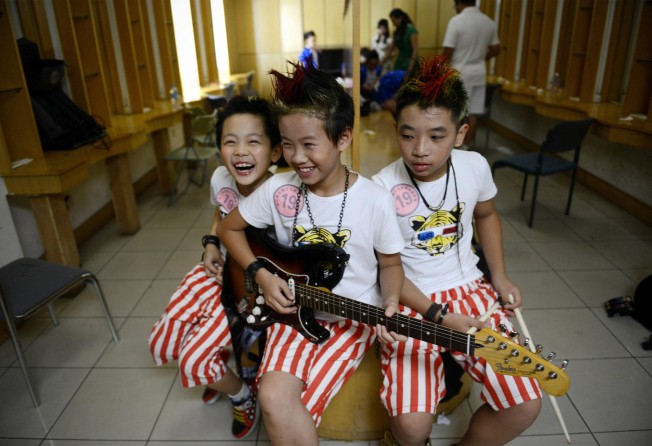
Let children play musical instruments, their way
Pushing kids into learning to play an instrument can put them off

If your evening routine includes arguments, incentives and timers in order to cajole your children to practise an instrument, you might want to rethink your approach. While creating music should be a joyful lifelong experience, the path towards mastery of an instrument can be tempestuous if the motivation is wrong.
Music, like competitive sports, Advanced Placement (AP) classes and volunteering has become another near chimera in the desperate sprint towards collage acceptance. For some, music is a ticket to college. But for the vast majority, music practice ranks near the top of the list of topics that induce day-to-day stress in busy households. The path to musical literacy for the majority is strewn with abandoned instruments.
Despite having grown up with music teacher parents, I never learned to play an instrument. I was determined the same would not happen to my own children, so I signed them up for traditional music lessons from the time they were small. In my home I have two violins, a trombone and a piano; all abandoned by my children.
Perhaps it's my own lack of resolve in encouraging them to stick with it, but I could see their lack of enthusiasm and no amount of prodding from me would have changed that.
For my eldest I sought the advice of Dr Frank Abrahams, a prominent college music educator in the US. I expected he would share the latest practice techniques with me, but instead he simply said, "Get him an iPod. That way he can figure out what kind of music he likes. Once he knows what he likes, I can teach him how to play it."
I was shocked, and a little disappointed at first, but then I began to understand the approach.
"What's great about this idea," says Kathryn Bechdoldt, middle school choir director at the Hong Kong International School, "is that it gives kids the ability to examine and grow their taste independently. Giving a child ownership of their aural environment, their time, and their taste will immediately increase their interest. From there, it's the teacher's job to find ways to stretch and support knowledge and skill in a variety of genres."

My son abandoned the piano and trombone, but picked up the electric guitar when I found a teacher who taught him to play rock music. His genuine interest and a lack of pressure from me found him more open minded when a jazz musician offered to work with him, and encouraged him to play acoustic and to practise scales so he could move his fingers more smoothly over the strings. This gave him ownership of the process and the outcome. His goal was to be able to play the music he likes rather than to play scales better than he did yesterday. He felt empowered to improve himself, not simply challenged to please the teacher.
But music, like a sport or mastering anything, takes practice and discipline. There's no getting around learning to read music and practising scales, but the student has to understand the purpose. For example, when she's teaching guitar, Bechdoldt says, "I show students how much more strength their fingers have when they hold the guitar neck with correct technique, and how much more easily and quickly they can switch chords. It allows them to see that I'm not making rules at random; the 'rules' of how to hold a guitar are actually making them better guitarists."
Start by asking yourself what's your goal in music education for your child? Do you want them to have performance experience, to win awards, recognition, or do you want them to have a lifelong love of music and the ability to create it? If the latter, then perhaps let the child explore music in a fun, creative way by attending all kinds of live music concerts, let them pick the music you listen to in the car and seek out instructors who are forward thinking and who love to create music themselves.
These are positive things parents can do to empower children to cultivate authentic, lifelong musical literacy.
Gweneth Rehnborg is a board member of Bring Me A Book, a leading advocate for family literacy bringmeabook.org.hk